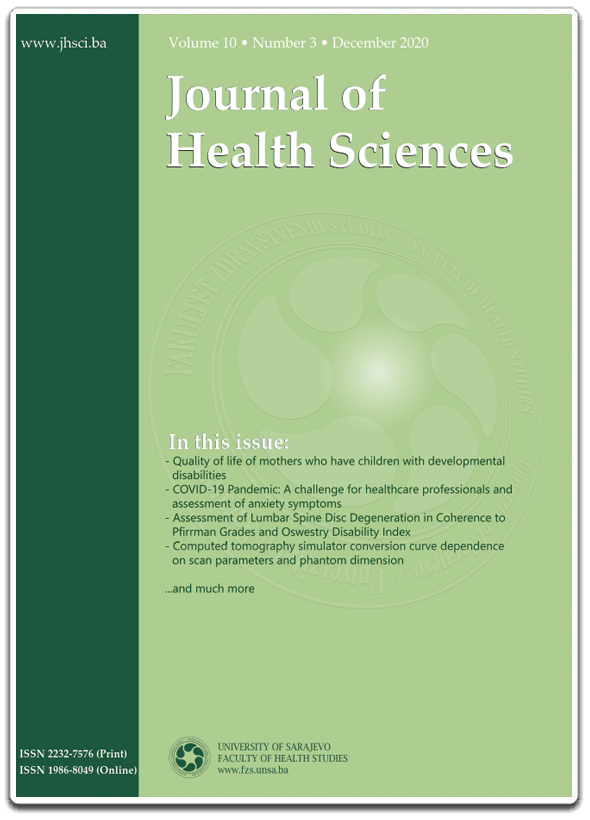Risk factors for depression in residents of gerontology center in Sarajevo
DOI:
https://doi.org/10.17532/jhsci.2015.236Keywords:
elderly, risk factors, geriatric depression scale, GDSAbstract
Introduction: Depression is the most common mental problem in elderly and is often under-recognized or is inadequately treated, thus significantly affecting the quality of life of elderly people. The reasons for the occurrence of depression in the elderly are multiple. The most common are neurobiological and psychosocial risk factors as well as physical illness. The aim of this study is to determine the presence of the most common risk factors related to the degree of depression, determined by the geriatric depression scale.
Methods: This is cross-sectional, descriptive and analytical study undertaken on the sample of 150 psychologically and physically capable residents of the "The Gerontology Center" in Sarajevo older than 65 years. The following instruments were used for research: the Geriatric Depression Scale (GDS) and the modified questionnaire on risk factors important in the depression development.
Results: Women are more depressed than men (p<0.01). Depression severity increases with age (p=0.008). The marital status of respondents was significant factor affecting the GDS scores (p=0.009). GDS score and education are weakly correlated (p=0.07) and more educated are less depressed. Also, independently mobile elderly are less depressed (p<0.0005). GDS scores and presence of depression in younger age are dependent (p=0.004). Depression and subjective sleep disturbances are dependent (p=0.002).
Conclusion: The most common risk factors for depression in elderly are gender, age, marital status, history of depression in younger age and mobility.









